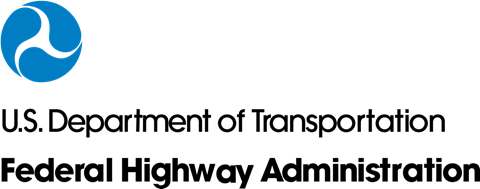Federal Highway Administration: Promoting a Diverse and Inclusive Transportation Workforce through Internships
Employer Case Study: Find out how a summer internship program supports on-the-job training for students with disabilities.
This case study focuses on how the Federal Highway Administration’s Summer Transportation Internship Program for Diverse Groups recruits and engages students with disabilities.
The U.S. Department of Transportation's Federal Highway Administration (FHWA) created its Summer Transportation Internship Program for Diverse Groups “to mentor and cultivate tomorrow’s leaders, strengthen their understanding of the transportation industry and prepare them for future public service opportunities.” Funded by the FHWA’s Office of Civil Rights’ On-the-Job Training Supportive Services Program, the program is open to all qualified applicants; however, it was designed for underrepresented groups including women, individuals with disabilities and racial and ethnic minorities.
By targeting its outreach to students with disabilities and from other under-represented groups, the agency communicates a strong desire to recruit and develop a diverse talent pipeline. The program provides all interns with on-the-job-training experience through meaningful work assignments central to the agency’s mission. All interns receive structured professional development through various activities designed to prepare and position them for successful careers after graduation. Program advisors provide ongoing support to all interns, including assistance with obtaining reasonable accommodations at work and for housing, travel and transportation.
The interns are undergraduate, graduate and law school students currently enrolled in degree-granting programs at accredited institutions across the U.S. For ten weeks, the interns work on transportation-related projects and assignments in one of FHWA’s many locations nationwide. The program provides a stipend, as well as financial resources for housing, travel and transportation expenses, if the intern’s residence is not close to their worksite.
The program actively recruits students with disabilities by participating in college tours with the U.S. Department of Labor’s Workforce Recruitment Program and conducting outreach through diversity career fairs. The program coordinator emphasizes the value of inclusive marketing and outreach materials to attract students with disabilities. When marketing images of professionals in the workplace includes one or more individuals with disabilities, students are more likely to feel welcome and reassured that the work environment will be inclusive.
Applicants with disabilities receive guidance on how to request reasonable accommodations. To ensure the program can fulfill any reasonable accommodation requests, the program budget includes funds specifically for this purpose. The program also requires that contractors, responsible for arranging student housing, verify that all housing meets accessibility standards of federal nondiscrimination laws, such as the Americans with Disabilities Act and Fair Housing Act.
When a workplace accommodation is requested, the program coordinator discusses the specific needs with the intern and workplace mentor ensuring that an appropriate accommodation is made. For example, one student intern notified the program coordinator that she would require additional time to complete assignments. Although no physical accommodation or assistive technology was needed, as per standard procedure, intern consent was acquired and this request was discussed with the workplace mentor who would be supervising her daily work.
Before starting the internship, interns receive a welcome packet which explains program expectations and how to participate in a regional web conference initiating the orientation process. At the worksite, interns complete an in-house orientation held on their first day to learn about the basics of working for the agency, an overview of agency and contractor relationships, and security protocols for federal buildings, offices and information technology (IT). All interns complete IT security training and receive a certificate. They also learn the appropriate point of contacts for different issues and receive information about the internship program schedule. Additionally, the orientation includes guidance from Department of Transportation staff on how to maximize their internship experience including professional etiquette and how to network.
All interns, including those with disabilities, receive meaningful work assignments in an agency department or unit. The intern’s placement may be technical in nature (e.g., science, engineering, community planning, security) or related to one of the agency’s other mission support functions such as civil rights, research, library sciences, human resources, IT, marketing, public affairs and finance. Interns are matched with work assignments based upon what best suits their academic focus and interests. Only 20% of the work any intern is assigned may be administrative while the other 80% must be substantive.
The program emphasizes learning by requiring all interns to complete a research project related to their work assignment. Participating in structured professional development activities, such as career development seminars, academic workshops (e.g., writing skills), and field trips are also required by the program. On-the-job training is provided in daily work assignments and interactions with workplace mentors and coworkers. Regardless of worksite location, all interns convene at the agency’s headquarters in Washington, D.C. near the end of their internship and all travel and housing expenses are covered for interns located outside of D.C.
Throughout the internship, interns receive support from a program advisor who meets and communicates regularly with each intern. This ongoing communication helps the program advisor identify whether any interns are experiencing any challenges or require assistance. Interns are encouraged to let their advisor know if they need assistance at any time.





